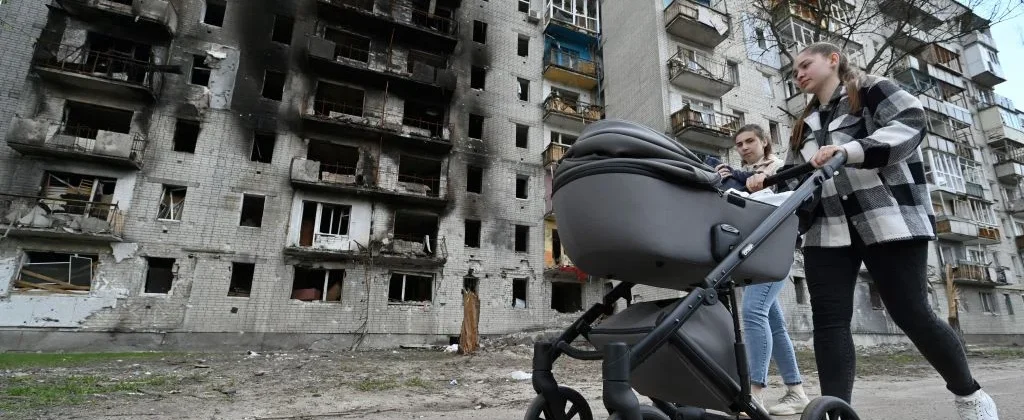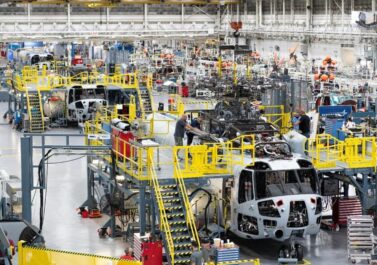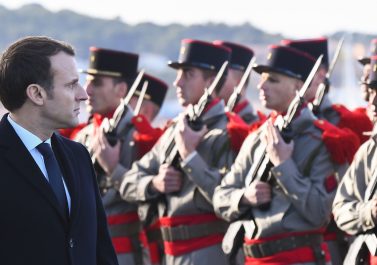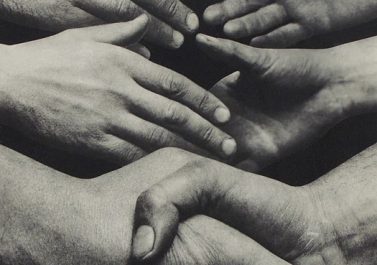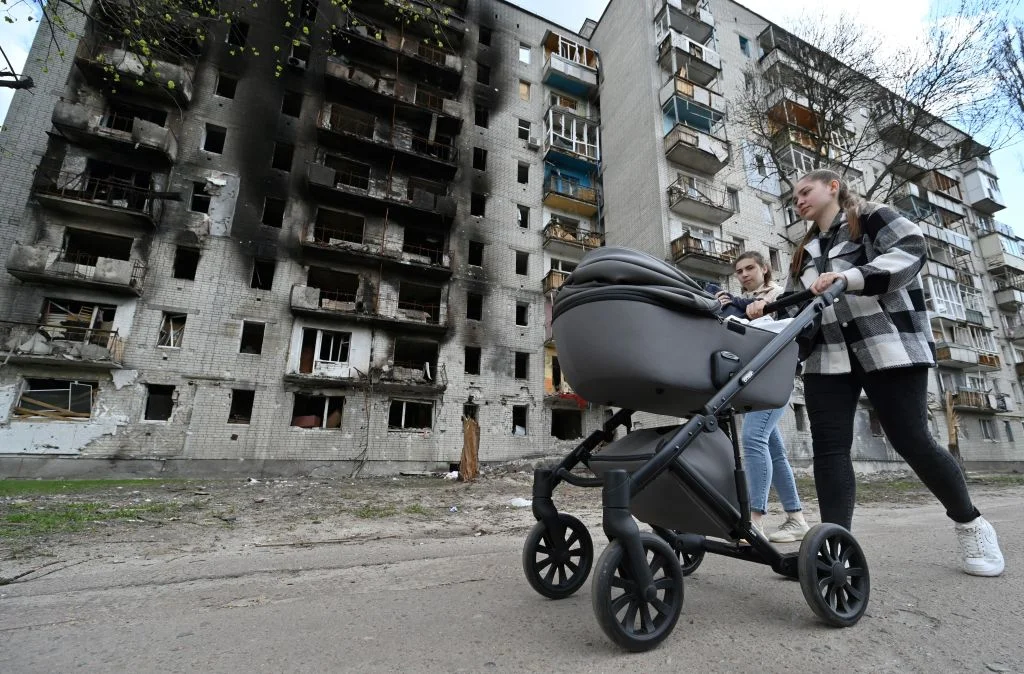
This is another contribution to our debate about the war in Ukraine, written by the comrade who previously submitted the ‘subjective summary of our internal debate’ and thoughts on armed resistance.
—
I initially drafted this text as a response to one of our comrade’s contribution: ‘On dogmatism in relation to the war in Ukraine’.
The text then turned more into an appeal to reflect on initial positions, e.g. about the scope for independent armed resistance or the wider implications of the war, now that we have the tragic hindsight of over 100 days of war and the sad prospect of further months of carnage.
You will also find some sketchy thoughts on the debate about the motives of the war. Here I mainly refer to arguments by comrades like Ilya Matveev who propose that the Russian state fights the war against the economic interests of ‘Russian’ capital.
Finally I also want to summarise some impressions after a talk by comrades from IP (Workers’ Initiative union) in Poland, who organised a solidarity convoy for mining and steel workers in Kryvyi Rih, an industrial town close to Kherson.
———
*** Response to my comrade
I guess I understand your frustration and your urge to see and refer to ‘workers’ self-organisation’ as the prime dynamic of social change. At the same time, I think that your comments were a bit of a missed chance for the debate, as you don’t really relate to the arguments that have been presented since we started the discussion. In my response to your text on Yugoslavia, I raised the question whether you can see similar kind of ‘workers’ responses’ in the current war in Ukraine, or whether the balance of forces and the type of warfare is similar. Instead of ‘being dogmatic’, I was trying to discuss the differences between the situations. You don’t really engage with these arguments. The other missed chance is to reflect on your (and our) initial position now that the war has continued for several months and will probably continue for the rest of the year, at least if we believe the official (and optimistic) statements of the Ukrainian military camp.
You write: “So for example the massive supply of NATO arms is cited to show that this is NATO’s war against Russia, ignoring the reality that in the first two weeks of the invasion NATO were very reluctant to get involved at all and it was the widespread popular anger at the invasion that first forced them to change track and then to look at how that popular mood could be harnessed to their own ends.”
I analyse this differently. The fact that there were bigger arms supplies during the first two weeks doesn’t mean that there was no major military collaboration preceding that or, in fact, that both the UK and US are currently driving towards a continuation of the war, perhaps even against the will of the Ukrainian government. If millions of protestors against the war in Iraq in 2003 were not able to stop the military intervention by US and allies, how can much more minoritarian expressions of ‘popular anger’ force NATO states now to supply arms to Ukraine if they had no self-interest in doing so? Yes, it should all be about workers’ self-organisation. But I don’t think it is dogmatic to say – and you admit yourself – that not everything that workers do will increase the chance of emancipation. There are situations where the subjective and collective development of local workers has been undermined to a degree where they feel compelled to act to the detriment of their longer-term interests as a class. But then, it is not all about the ‘subjective factor’. Local workers in Ukraine might have the best intentions to fight ‘for their freedom’ and ‘self-organise’, but the global constellation of forces will leave them no scope to escape and remain independent on a militaristic and nationalistic spiral of death. Should we patronise them and ‘support their efforts’, despite the fact that we think that their ‘blossom of emancipation’ will be drenched in blood?
You write: “The western ‘left’ is so blinded by dogma and so inexperienced at living under dictatorship that they actually can’t tell the difference between life in a bourgeois democracy and life under the rule of Putin.”
At the same time, we see that it is primarily the ‘western left’ that supports the Ukrainian state and, as you yourself write, it’s the ‘left’ in Brazil or Africa that supports Putin.
At this point, I think you misrepresent what I was saying when you reduce my position to, ‘workers should refuse to fight the invasion and just fight in their workplaces’. I said that for both tactical and political reasons, workers should avoid trying to fight the invasion militarily – which makes them more likely to get massacred and completely swept up in a nationalist-imperialist dynamic that they can’t control – but fight the dictatorship on their own terms, like workers did in Brazil, Poland, South Korea or South Africa in the 1980s. They were all successful in the sense that they regained liberties, largely avoided getting slaughtered, and retained, at least initially, an element of class independence. Solidarnosc, the PT or ANC were shit organisations, which you yourself opposed vocally, but within that dynamic, workers proved that they could organise themselves under the duress of a police state, not just through workplace struggles, but underground networks, acts of sabotage and guerrilla activities. Even now in Russian-occupied areas of Ukraine, women are coming together to demonstrate against forced conscription. Am I dogmatic to point this out?
To bring in these historical lessons doesn’t mean that we cannot relate to the situation on the ground, to elements of self-organisation. I agree, we didn’t do enough of this, partly because we were busy with or paralysed by our own discussion about the war – but this is the opposite of a ‘dogmatic’ situation. We took time to discuss with each other, at least some of us did. If we would all be on a clearer path (or a party line!) we could have started early on to support initiatives like the couriers union in Kiev or the women care workers from Ukraine in Poland. In the long run, I want to be in a political organisation that can be ‘active’ and support internationalist initiatives on the ground. But I also want to be in an organisation that, at this historic hour, clearly states that capitalist crisis and war go hand in hand, that workers should refuse to get embroiled, that we have to break the dynamic of ‘national alliances’ that we can’t control.
*** After 100 days of war
Another shortcoming of our own debate is that so far we haven’t reflected on our initial positions, e.g. on the question of independent armed resistance or the global dimension of the war, in the light of the experience of the last 100 days of war. In general it might take years to really understand the internal and external dynamics, as we were able to see for example in relation to the war in Iraq in 2003 – still, the last 100 days have revealed some general tendencies.
* The scope for independent armed resistance
Initially there were several voices within the (radical) left and anarchist milieu that talked about the possibility of maintaining independent military units, also expressing a political goal that was independent from that of the Ukrainian state. During the course of the war, it has become more apparent that there is little scope for independence, partly because the war itself changed. At the beginning of the war, things looked like ‘warfare light’ and the war commentators praised the combination of drones, flexible combat units and the use of mobile hand-held weaponry on the Ukrainian side. This changed fairly quickly and it became a war of attrition, both in terms of human loss and use of heavy machinery. There are various news items about the fact that the Ukrainian state forces militarily unexperienced men to fight at the frontline, but overall it is largely a professional type of warfare. Volunteers of the territorial defence force are largely used as para-police troops away from the actual frontline to find saboteurs or to enforce curfews. There are more and more legal cases against Ukrainian citizens for ‘treason’ and collaboration with the enemy. In some cases this might have been an active collaboration, in other cases it might just have been people who decided that rather than getting killed they let the Russian army take over local administration. This further limits the scope for workers to make their own decisions – see report from mining workers below.
* The results of military warfare
While aggressive, the Russian army did not start the war by mass bombing civilian areas or mass executions and ethnic genocide. I rather believe that they thought they would have an easy ride and risked major casualties by relying on ground forces. After the events of Mariupol and the defence of the Azov Steel plant, we can see more clearly that there is a relation between military-style defence and the likelihood of being shelled and potentially massacred by the Russian army. Rather than ‘defending’ the cities, the Ukrainian army barricades itself within the urban areas, amongst the civilians. All military commentators praised them for ‘intelligent urban warfare’. Some people might genuinely think that they ‘rescue’ the civilian population by engaging in military combat within cities. Military strategists will see it less in these terms, but as ‘strategical advantages’. But the objective outcome is an increase in civilian casualties. I think the cases where the Russian army attacked areas where no Ukrainian army was present are pretty rare. Even in Bucha, the prime example for ‘barbaric’ Russian behaviour, heavy shelling attacks within the urban area preceded the attacks on civilians.
In cases like Ireland and the IRA or the Maoist areas in India or other situations that came much closer to a ‘peoples’ war’, it took working class civilians a long time to denounce the ‘saviours’, but at some point they clearly said: we don’t want you in our areas, you attract death. And again, this was in situations where there was perhaps a more conscious effort (‘guerrilla’) to avoid civilian casualties, as the IRA or Naxalites were not fighting a traditional military war.
The other fallout of the war will be the restriction of workers’ rights and further restructuring of industries as part of a ‘Marshall Plan’ for Ukraine after the war. With each day of destruction the Ukraine state will get more dependent on future access to the EU and global credit institutions, which in turn subjugates their military and post-war strategy to the interest of future donours.
* The global dimension of the war
There is a close link between capitalist global crisis and global war. We are in such a situation. Historically it was the ‘weak imperialist’ nations, like Germany, that were forced to start wars, by being ‘aggressors’ of smaller nations’. But this set off an underlying deeper dynamic between the main imperialist blocks – they were all in need of drastic measures to restructure their ‘own’ economies in crisis and couldn’t afford to stay out of the global competition, now fought out in military terms. It seems we are again in such a situation, with at least the US and UK pushing for a continuation of the war in Ukraine, perhaps even against the will of the Ukrainian government. By May it became clear that the Ukrainian army depended heavily on western intelligence, e.g. when killing high ranking Russian army personnel.
Initially it seemed that NATO states in general were reluctant to supply weapons to the Ukrainian army – although this ignores the military and intelligent aid that was given during previous years. During the course of the current military confrontation, certain divisions have opened up ‘on the west’. The US and UK are more willing to supply weapons, France and to a certain extent Germany are less inclined. The war in Ukraine has lowered the threshold for global militarism. Since April 2022, the US have stepped up their military threats vis-a-vis China in case of an invasion of Taiwan.
* The role of the left
Historically the left and trade unions failed to disentangle themselves from their ‘national perspectives’ and supported the imperialist wars from the perspective of ‘national liberation’ or ‘defence of democracy’. The war in Ukraine has set off a chain-reaction of calls for re-armament supported by much of the statist left. In Germany, the Green Party have agreed to a £100 billion military spending plan; Podemos in Spain and DSA in the US also supported ‘game-changing’ re-armament programs. While praising the defence of ‘democracy’ against Russian aggression, there are only very few voices that criticise the conscription and other repressive policies of the Ukrainian state. The (radical) left has thereby disarmed itself and the wider working class. Apart from anti-war strikes in Italy organised by SI Cobas and CUB, there are only very tiny voices criticising their governments, their engagement in the war and the inflationary consequences. Calling for a strike against the Italian state’s participation in the war didn’t stop internationalists from supporting aid convoys for trade unions in Ukraine.
*** On the motives of the war
It is correct to criticise those on the anti-imperialist left who reduce the motives of the Russian state to attack Ukraine to the question of NATO expansion. Comrades from Russia, like Ilya Matveev, emphasise the fact that the war is not in the interest of ‘Russian capitalists’ and that therefore there is no ‘economic’ explanation for the war. To me this seems like a fatal reduction of the term ‘economic’, which equates ‘capital’ with the profits of individual smaller or bigger corporations. This would reduce the motives for the war to a purely political power game by a small circle of politicians and their apparatus. In a recent talk Matveev said: “Would it not be more rational to keep on reaping the gas profits”? I think here the war is a pretty direct link, in the sense that heavy dependence on either access to or export of ‘territorial commodities’ such as oil or gas tend to require a violent state enforcement. In the case of Russia this extends to the Middle East and Africa, where Russia has become the guardian in major mining areas, for example in Sudan, or gas investments, such as in Mozambique.
I think that, as a minor player in terms of manufacturing or financial power, the Russian state has to deepen the cracks between the major power blocks and offer itself as a bouncer for the access to the strategic natural reserves or the security of ‘extractionist regimes’. In this sense the timing wasn’t so out of touch: the Chimerica constellation has been unwinding since Trump; Brexit showed cracks in the EU block, that opened space for either US influence or ‘a European axis’, e.g. closer ties between Germany, France and Russia. The US tried to prevent that by many means and has to take increasingly aggressive positions in order to stem the process of ‘de-Dollarisation’. The left focuses a lot on the immediate regional conflict, e.g. would an occupied Ukraine be an asset for Russia or not. It might make more sense if, in addition, you take the situation of the Russian and Chinese state involvement in Africa etc. into account.
The fact that the Chinese state is not immediately endorsing and supporting the war effort in Ukraine doesn’t mean that they are not interested in a longer-term collaboration with the Russian state, based on its role as the ‘global gendarme of extractivism’. The Russian state is aware of the global constellation of industrial, financial and military power and its own weak position. To use a crude picture: while the EU is able to occupy Ukraine through automobile supply-chains, seasonal visa for agriculture labour for fields in Germany or UK, brain drain of the Ukrainian intelligentsia or soft-power interventions like during Maidan, Russia, on the other hand, has few other means but KGB-style of bullying, old tanks and teenage contract soldiers from Siberia.
In this sense the war is not just a ‘political maneuver’ to create an external enemy and with it an internal state of emergency and patriotism which helps to keep the Putin regime in place. If we talk in terms of uneven and combined development the Russian state knows that only the linking up with manufacturing know-how and finance from China will allow it to counteract the attempt of the US to impede further collaboration between Russia and the EU. While the US is (still) able to deal with the current global crisis in the form of trade and financial wars, the weakest link has snapped.
*** Visit of comrades in Kryvyi Rih
Some of us recently visited our comrades of IP (Workers Initiative) in Poznan, where they reported back from a convoy to support mining and steel workers in Kryvyi Rih, Ukraine. They primarily met with leaders of the mining and the local police union. Kryvyi Rih is a large town (formerly around 615,000 inhabitants) of coal and iron ore mines. Also there are huge steel works, primarily run by the multinational Arcelor Mittal and SCM, which belongs to the oligarch Rinat Akhmetov. Around 2,000 of the 50,000 local mining workers have gone to fight at the frontline, the rest keep on working 13 hours shifts on two-thirds of the pay. Higher-up management of the steel plants have left the area and manage the plants ‘remotely’.
The trade union leaders reported that the Maidan movement primarily strengthened the far-right and weakened the left. Since then, they’ve had hard fights with the Ukrainian state, around the issue of health and safety in the mines, pollution and trade union rights amongst other things. They were threatened and attacked by Ukrainian secret service forces and private oligarch security several times.
Several trade union leaders enrolled to fight in Donbass after 2014, but in hindsight they said that it was an unnecessary conflict and provocation by the Ukrainian state. When the war began, they enrolled in the territorial defence force. They said that this was also necessary in order to get access to aid, as official aid was sold, rather than handed out by the local political class. They don’t receive official military supplies, they have to organise this through union channels. At the moment there is no major presence of the Ukrainian army in the area. The front-line is about 30 to 40 kilometres away in Kherson. There is a gas pipeline that still carries Russian gas close to the mining area. The workers fear that once this gas supply is switched off, bombardments from the Russian army will become more likely. They are in touch with mining workers in Donbass – the knowledge about conditions there will also have motivated them to resist the occupation by the Russian army.
For me there are various open questions. How would these workers see the arrival of the Ukrainian army in the area – after the fights in Mariupol and around the Azov Steel plant, which created a pretty devastating military dynamic? Do the workers see a chance to ‘keep out of the line of fire’, being a massive and collectively armed workforce? Are the local steel corporations interested in using the armed mining workers as foot-soldiers to defend the plants? One of the main sources of income of the wider territorial defence force is finance from bigger local capitalists like Akhmetov. Surrounded by trenches, with the Russian army in front and the repressive forces of the Ukrainian neoliberal restructuring in the back, is there a chance for a collective independent position which would make immediate survival more likely in the short-term and the retention of collective strength as workers in the medium-term?
The work of the IP comrades, the effort to meet workers and to offer direct material support and solidarity is a necessary precondition to discuss these questions and find a way out of the trenches. I set this apart from a left that sees the collaboration with state armies and western (or eastern) imperialist powers as a lesser evil and thereby distorts working class internationalism until it becomes unrecognisable.
